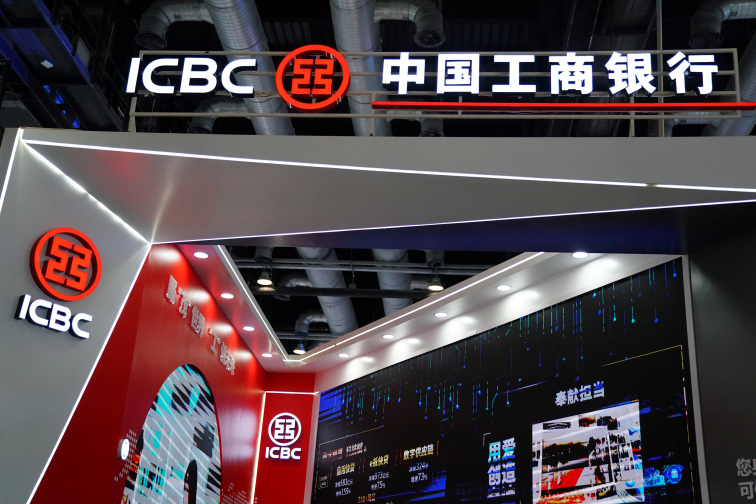According to a report from Chinese state media, on October 14, Chinese Foreign Minister Wang Yi, a member of the Communist Party of China's (CPC) Politburo, had a phone call with Israeli Foreign Minister Eli Cohen. In the report, Cohen "shared Israel's views and concerns on the regional situation," stating that "developing relations with China is a consistent Israeli policy and aligns with the mutual interests of both nations. The Israeli government upholds its long-standing position on the Taiwan issue."
However, according to a statement released by the Israeli Embassy in China, Cohen's remarks covered three key areas, none of which were reported by Chinese state media. The specifics are as follows:
1. Israel-China Relations
Regarding Israel-China relations, Cohen said, "We agree to work together to strengthen the ties between the two nations, building on the friendship between the Jewish and Chinese people." Additionally, Cohen noted the significant economic cooperation between the two countries, including bilateral trade. He mentioned that approximately 20,000 Chinese workers continued working in Israel during the ongoing conflict.
Cohen's remarks indicate that Israelis now recognize who their true benefactors are—it is not the current CPC regime, but rather the diplomats of the Republic of China and the ordinary Chinese people. The relationship between Israel and China is built on the foundation of friendship between the people. This distinction, similar to that made by the U.S. and Europe in separating the CPC from the Chinese people, is a significant blow to a regime known for its deceptive practices.
Regarding economic relations, Cohen may have been subtly signaling to the CPC that it should reconsider its unwavering support for regimes and organizations like Iran, and instead focus on economic considerations.
2. Iran as the Source of Instability in the Middle East
Cohen stated that "Iran is the main source of instability in the Middle East," and that through its proxies, including Hamas and Hezbollah, Iran poses a direct threat to stability in the region and globally.
He mentioned that Iran launched over 180 missiles at Israel, and no country can ignore such attacks. Israel will respond to Iran's aggressions. Regarding the atrocities committed by Hamas, Cohen emphasized the need for the immediate release of 101 hostages and the dismantling of Hamas' infrastructure. Concerning Israel’s strikes on Hezbollah, Cohen said their goal is to allow residents in the north to return home and ensure the safety of Israeli citizens.
With Israel’s strong intelligence capabilities through Mossad, it is unlikely they are unaware of the CPC's shadow behind Iran, Hamas, and Hezbollah. By identifying Iran as the main source of instability in the Middle East, Cohen may be warning the CPC: stop supporting Iran.
3. Expectation for China's Balanced and Just Stance
[The People's Daily Report] Regarding how China should approach Israel's conflict, Cohen expressed his hope that China would adopt a "balanced and just stance" on war-related matters, "reflecting accurately who the terrorists in the region are and which nations are resisting their attacks."
The question is, did the CPC understand Cohen's message, and will it consider Israel's position and stop supporting terrorist organizations? The answer is clearly no.
First, Chinese state media did not report Cohen’s remarks accurately, merely glossing over them and even distorting his words. For instance, Cohen did not mention that "the Israeli government upholds its long-standing position on the Taiwan issue." Such concealment and distortion prevent the Chinese public from knowing Israel’s true stance. Undoubtedly, the CPC fears that the Chinese people will learn the truth.
Second, the comments by Wang Yi, as reported by Chinese state media, are also misleading and filled with clichés.
Let's look at what Wang Yi reportedly said during the call. He stated that "the immediate priority is to achieve a comprehensive and permanent ceasefire in Gaza and release all hostages," that "the Palestinian issue remains the core of the Middle East problem," and that he hopes to return to the "two-state solution" soon. He also urged all parties to "act with caution" to "prevent the situation from spiraling into a vicious cycle." Wang added that "China has no selfish interests in regional affairs and never engages in geopolitical competition."
Wang’s remarks clearly ignore the real cause of Israel’s recent series of attacks, which is the indiscriminate terrorist assault on civilians by Hamas, backed by Iran. The CPC’s failure to distinguish right from wrong reveals that it is not aligned with basic principles of justice. From Wang Yi’s supposedly neutral stance, as reported by Chinese media, it is clear that China is implicitly siding with the terrorist organizations. Israel's expectations for a balanced position will likely be disappointed.
As for Wang's emphasis that "Israel should take concrete measures to ensure the safety of UNIFIL (United Nations Interim Force in Lebanon) personnel," Cohen did not respond, likely as a gesture of diplomacy toward China. Recent videos have shown Hamas tunnels near UNIFIL sites, suggesting that Israel had legitimate reasons for its recent strikes on UNIFIL positions. Wang's so-called "righteous stance" is simply self-deception. Israel should learn from this experience and cease supporting the CPC.
(Original report from People News)










News magazine bootstrap themes!
I like this themes, fast loading and look profesional
Thank you Carlos!
You're welcome!
Please support me with give positive rating!
Yes Sure!